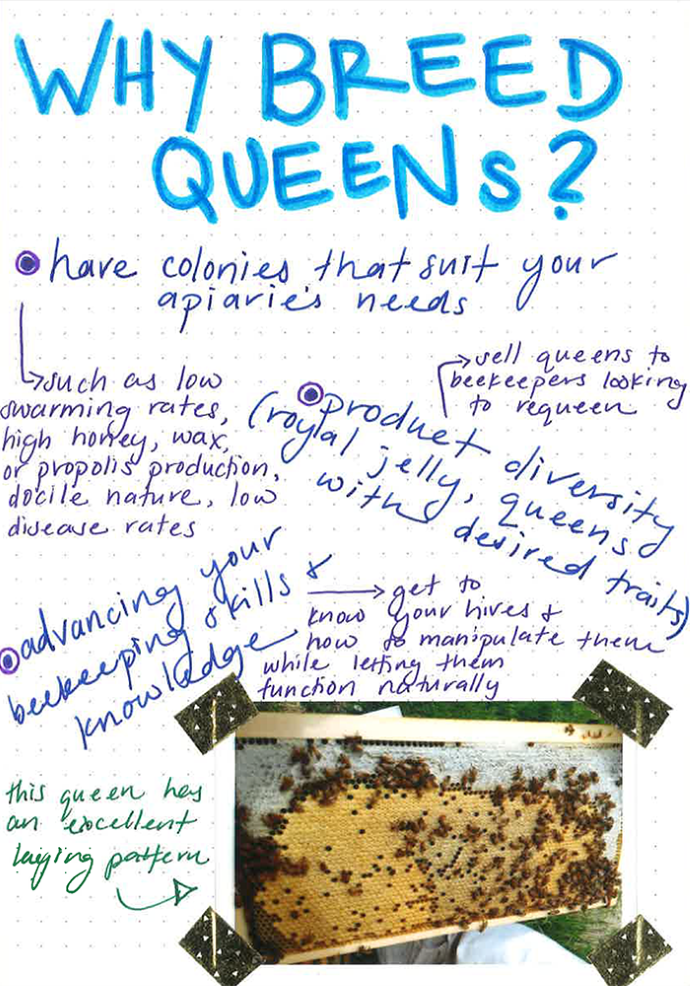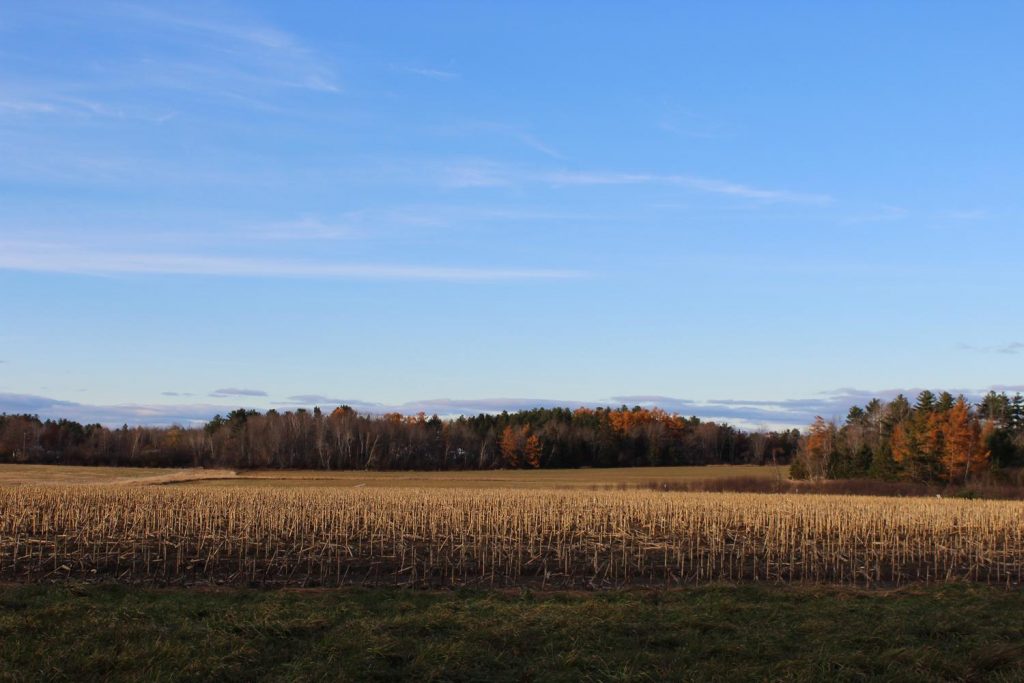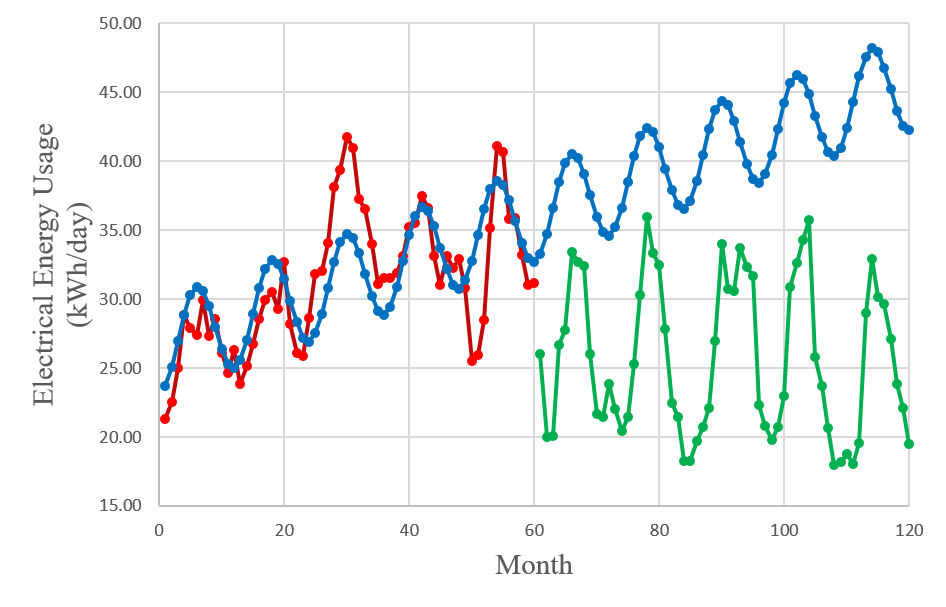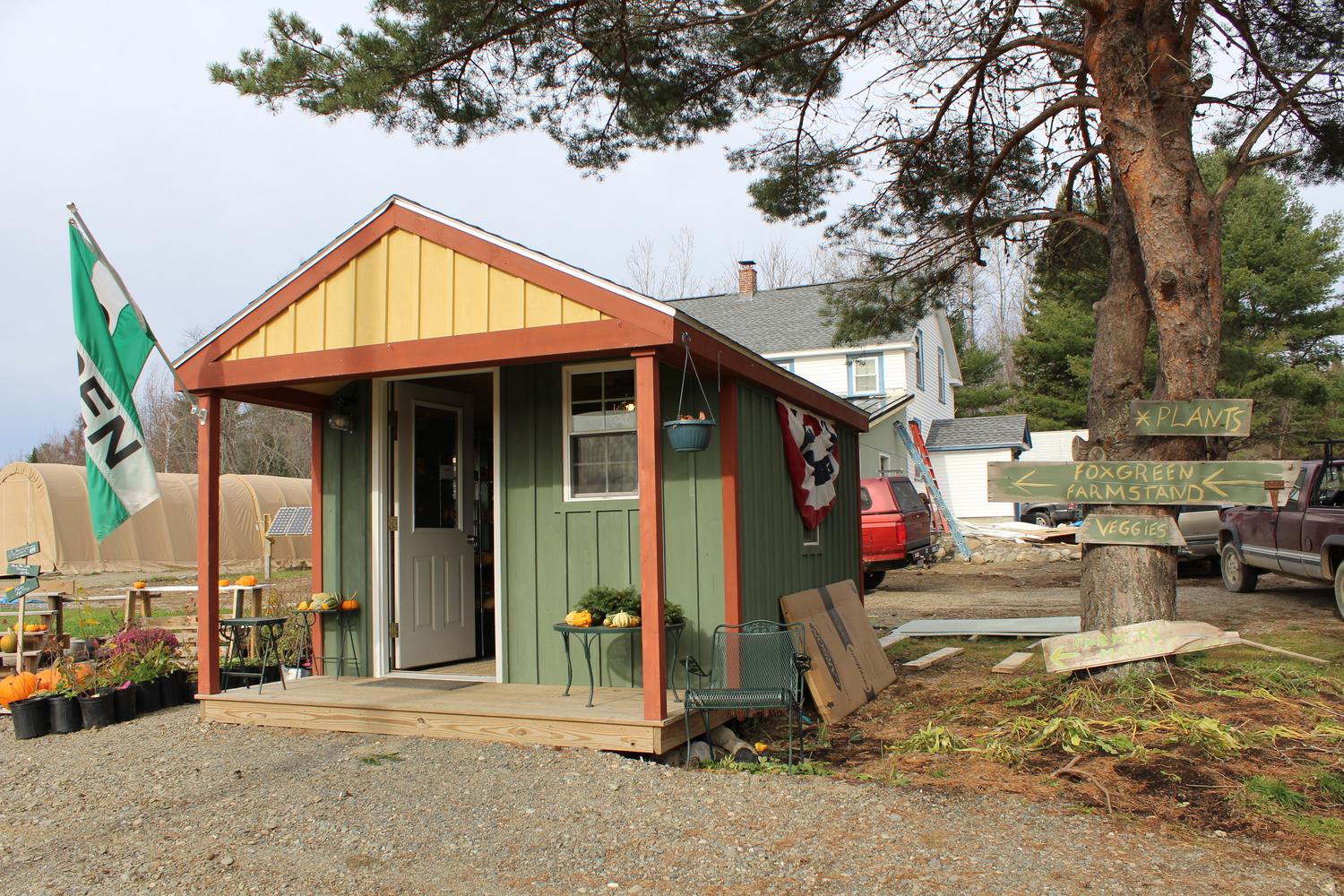Spire Issue 2019

A Letter From the Editors
The Editorial Board is proud to present Issue 3 of Spire, one which includes a range of work centered on the theme of environmental conservation and sustainability relevant to the Maine community and beyond. Staying true to form, these pieces demonstrate a depth of engagement with the theme that continues to be both surprising and inspiring.
Continue Reading

Rearing Queen Honey Bees: A Bullet Journal
Marianna Mead
SUMMARY
I created this bullet journal as part of my work as a Sustainable Food Systems Research Collaborative (SFSRC) fellow with the Sweet Spot Project during the summer of 2018. The Sweet Spot Project is a USDA-funded project on maple producers and beekeepers that involves the University of Maine’s Honors College and College of the Atlantic.
I started the project with the aim of researching queen rearing among honey bees and was paired with my community stakeholder, Peter Cowin. Our goal was to start a queen rearing operation from nothing, with Peter looking to potentially profit from queen rearing deliverables. My research focused on learning and understanding how to rear queen honey bees, what tools are involved, what skills are needed, and how knowledge is shared… Continue Reading
On Qualitative Writing: Building an Interdisciplinary Community of Practice
Lydia Horne, Brieanne Berry, Anna McGinn, Sandesh Shrestha, Brooke Hafford-MacDonald, & Sara Lowden
ABSTRACT: As authors, we are familiar with the “publish or perish” mentality often used to describe academic writing. Despite the centrality of writing to the academic world, writing can often present significant challenges especially given this increasing pressure to produce. Building upon the experience of attending a qualitative writing retreat, two University of Maine graduate students were determined to start their own writing group to better engage with complex sustainability issues using qualitative methods. This writing group now meets regularly and has become a community of practice, holding members accountable and creating a space to help us engage with the research and writing process. In this essay we reflect on the process of qualitative writing and share our experiences as a newly formed writing group in overcoming challenges associated with writing, including how to write across disciplines, how to effectively engage with interdisciplinary research, and how to provide thoughtful feedback… Continue Reading


Five year post-installation review of a heat pump water heater
Thomas E. Stone
ABSTRACT: Heat pump water heaters extract energy from the surrounding air and transfer that energy to a water tank in order to heat the water. This is a very efficient process compared with more common hot water heating methods, and can be used to reduce a home’s overall energy consumption. Despite modest installation costs, which are currently mitigated by a state rebate program, and typical payback times on the order of three years, this technology is not widely adopted in Maine. Here I present a data set consisting of a central Maine family of four’s electrical usage for the five years prior to the installation of a heat pump water heater, and the five years after installation. I find that, on average, the home annually avoided 2,072 kilowatt-hours of electrical energy usage, 1,405 pounds of carbon dioxide emissions, and $311 in electricity costs after the heat pump water heater installation. Wider adoption of this technology would result in important environmental and economic impacts for individual families, and their collective action could also have large-scale implications… Continue Reading
Jessica Rule and Samantha Moore
If you live in Maine, you probably know that the first defense to feeling cold in your home is to put on another layer, maybe some socks or a sweater, rather than to turn up the heat. This is a reality of growing up and living in this beautiful state that just so happens to be “wicked” cold for 6 months of the year. When using a standard furnace or boiler, heating your home with oil can cost over $3,000 annually in Maine, which is among the highest in the nation (Governor’s Energy Office, 2012). Maine also has one of the oldest housing stocks in the country, so drafts and poor insulation contribute to these high heating costs, and colder than preferred indoor temperatures. AmeriCorps members and students, partnering with various organizations throughout the state, have been helping communities tackle these high heating costs by implementing window inserts within their homes… Continue Reading




